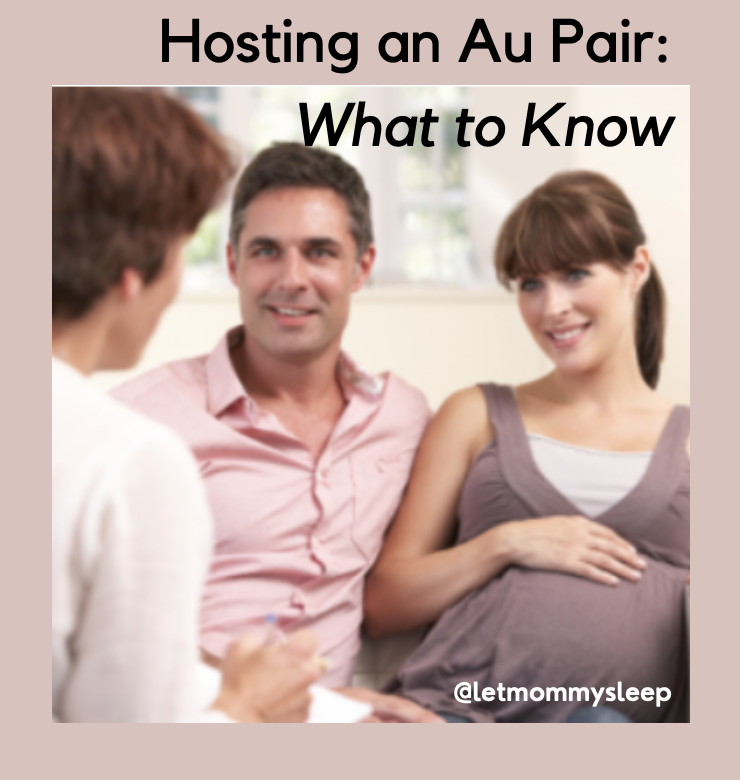Should I Host an Au Pair?
Should I Host an Au Pair? answers parents’ frequently asked questions about au pairs so you can see if this international childcare option is right for you, your newborn and your family.

Should I Host an Au Pair?
How does a family actually host an au pair?
The first thing to do is register with an agency or even several agencies. Jaclyn Perovich a current host mom and Cultural Care Au Pair consultant notes that it’s perfectly fine if you need a placement quickly or down the road. Either way, registering with an agency is the first step so you can begin the matching process when you’re ready.
Once you’re registered, you can start looking at au pair resumes and email them for interviews. A Placement Manager will help you go through the au pair applications and narrow down your family’s specific needs. You might have twins, be expecting a newborn when your older child is a toddler for example. The selection deadlines needed to secure a particular au pair with you will then be shared. The deadline is important because the au pairs travel will be determined by your start date.
In addition to the agency Placement Manager there may also be a Local Childcare Consultant (LCC) to help. This is the person in your geographical area who will be your local support throughout the year. The LCC also conducts in-home interviews with families and provides orientation for both the family and au pair upon arrival.
Should I Host an Au Pair? FAQ’s
What happens if the au pair arrangement isn’t working out?
If things aren’t working out with the host family and au pair, the local consultant will conduct a mediation. A “rematch” will occur if the relationship does not improve. The happens usually within 2 weeks.
Parents can set clear expectations and even over-communicate their needs to make set the relationship up for success. Following up with an email of the expectations and then having a hard copy of instructions in the home are also good ways to keep everyone on the same page.
When can the au pair work?
An au pair will work up to 45 hours of childcare per week, scheduled around your families needs.
Can an au pair work with newborns?
Au pairs can NOT be the sole caregiver for newborns. For infants 12 weeks and under their role is more of a “mother’s helper.”
How can families be sure their au pair is trained properly?
Reputable agencies provide safety and child care training. Cultural Care Au Pairs for example, conducts four day reviews of child safety and development at the company’s training school in New York. They also require a classroom course on driver’s safety taught by the Red Cross and the Red Cross Full Service Training in adult and pediatric CPR/AED and First Aid.
Should I Host an Au Pair? What are Alternatives to Au Pair Care?
Nannies are the main alternative to au pair care. The main differences between nanny care an au pairs is:
- Cultural Exchange vs. Formal Employment:
- Au Pair: An au pair is typically a young person from a foreign country who lives with a host family for a certain period of time. While the au pair is expected to help with childcare and household duties, the main purpose is cultural exchange.
- Nanny: A nanny is a professional childcare provider who is employed by a family to care for their children. Responsibilities can include newborn and infant care, meal preparation, transportation, and light housekeeping.
- Duration of Stay:
- Au Pair: Au pairs usually commit to staying with a host family for a fixed period, usually 6-12 months, before returning to their home country.
- Nanny: Nannies may work with a family for a more flexible period, and their employment may continue as long as both parties agree.
- Age and Experience:
- Au Pair: Au pairs are typically young adults, who may not have extensive childcare experience. They can not care for newborns without a parent present.
- Nanny: Nannies can be any age but often have professional childcare experience as well as formal training in early childhood education or newborn care.
- Compensation:
- Au Pair: Au pairs receive a stipend, room, and board from the host family. The stipend is typically a modest amount, as the primary focus is on cultural exchange.
- Nanny: Nannies are paid a salary or hourly wage for their services, and the terms of employment are more formal.
In addition to daytime nannies, parents of newborns might choose to have a postpartum doulam night nanny or night nurse. These providers usually work overnight hours while the parents rest and recover.
Categories
- Baby Care Classes
- Baby Care How-To's
- Baby Sleep
- Family Activities with Baby
- Feeding
- Franchise & Company Info
- Hiring Help
- Our Favorites
- Postpartum Health
- Safety & First Aide
- Twins & Multiples
- zArchives
